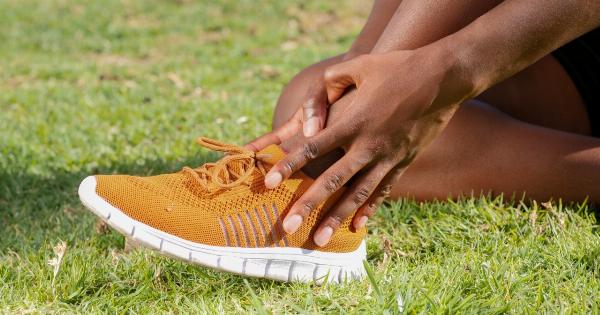There has long been a prevailing belief that running is bad for your knees and can cause long-term damage. However, recent studies have shown that this belief is not necessarily true.
While running does put stress on your knees, it can actually help strengthen them and may not lead to any negative long-term effects.
The Science Behind Running and Knee Health
One of the main reasons that running has been associated with knee pain and injury is due to its impact on joints. When you run, your knees absorb more pressure and force than they do during other physical activities.
This can cause wear and tear on the joint over time, leading to conditions such as osteoarthritis.
However, research has shown that running can also have benefits for knee health.
A study published in the Journal of Orthopaedic & Sports Physical Therapy found that running can actually help to strengthen the muscles and other tissues surrounding the knee joint. This can provide added support and stability, reducing the risk of injury.
The Importance of Proper Form and Technique
One of the key factors in whether or not running is good for your knees is your running form. If you have poor form or technique, you may be putting unnecessary stress on your knees, which can lead to injury over time.
For example, running with your knees straight can increase the amount of impact on the joint. This can lead to early wear and tear, which can increase your risk of developing osteoarthritis.
However, running with a slight bend in your knees can help absorb some of the impact and reduce strain on the joint.
Other Factors That Can Affect Knee Health
While running can have benefits for knee health, there are other factors that can also contribute to knee pain and injury. For example, excess body weight can put added pressure on your knees, which can increase the risk of developing osteoarthritis.
In addition, overuse injuries can occur if you do not allow your body enough time to rest and recover between runs. This can lead to inflammation and other types of damage, eventually leading to chronic pain and other symptoms.
Tips for Maintaining Knee Health While Running
If you want to start or continue running but are concerned about your knee health, there are several steps you can take to minimize your risk of injury.
First, make sure you have proper running shoes that provide adequate support and cushioning. Wearing the right shoes can help distribute impact evenly and reduce stress on your knees.
Second, work on improving your running form and technique. This can involve simple changes such as bending your knees slightly, keeping your feet pointed forward, and landing gently on your midfoot.
Third, be sure to give your body enough time to rest and recover between runs. This can mean taking a day or two off per week, or incorporating low-impact activities such as cycling or swimming into your routine.
The Bottom Line
While it is true that running can put extra stress on your knees, it does not necessarily mean that it is bad for them.
With proper technique and form, as well as adequate rest and recovery time, running can actually help to strengthen your knee joints and reduce the risk of injury.
























